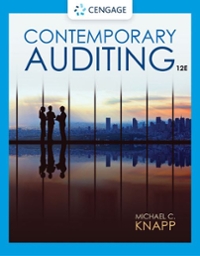Walmart's incredible growth was due to the hypercompetitive business model developed by Sam Walton. The central tenet
Question:
Walmart's incredible growth was due to the hypercompetitive business model developed by Sam Walton. The central tenet of Walton's business plan was the motto that he adopted for his company, "The Lowest Prices Anytime, Anywhere!" Walton reasoned that if he undercut the prices charged by his competitors, his company would generate sufficient sales volume to realize significant economies of scale. The most important of those economies of scale would be purchasing merchandise in bulk quantities at discounted wholesale prices that were not available to other retailers.
Walton's simple business plan worked to perfection as Walmart routinely dominated the geographical markets that it entered. The ultimate result of Walmart's alleged "predatory" business model was to drive large numbers of small retailers, including pharmacies, groceries, and general merchandise stores, out of business.
In an op-ed piece written for the New York Times, Robert Reich, former Secretary of the U.S. Department of Labor, observed that Walmart "Turns main streets into ghost towns by sucking business away from small retailers." In the early 1990s, Walmart became an international company when it opened retail outlets in Mexico and Canada. After replicating its successful business model in those countries, Walmart extended its operations outside of North America. Within two decades, approximately one-fourth of the company's sales were produced by its 6,000 retail stores in more than two dozen countries scattered around the globe. To date, Mexico has easily been Walmart's most successful international venture. Walmart quickly seized control of the retail industry in that country by taking away large chunks of market share previously held by domestic retailers that had operated in the country for decades. By 2012, Walmart's Mexican subsidiary, Walmart de Mexico, was Mexico's largest retailer and that nation's largest private employer.
Questions
1. Identify control activities that Walmart could have implemented for Walmart de Mexico and its other foreign subsidiaries to minimize the likelihood of illegal payments to government officials. Would these control activities have been cost effective?
2. What responsibility, if any, does an accountant of a public company have when they discover that the client has violated a law? How does the accountant’s position on the company’s employment hierarchy affect that responsibility, if at all? What responsibility does an auditor of a public company have if they discover illegal acts by the client? Does the auditor’s position on their firm’s employment hierarchy affect this responsibility?
3. Does an audit firm of an SEC registrant have a responsibility to apply audit procedures intended to determine whether the client has complied with the FCPA? Defend your answer.
4. If the citizens of certain foreign countries believe that the payment of bribes is an acceptable business practice, is it appropriate for U.S. companies to challenge that belief when doing business in those countries? Defend your answer.
Step by Step Answer:






